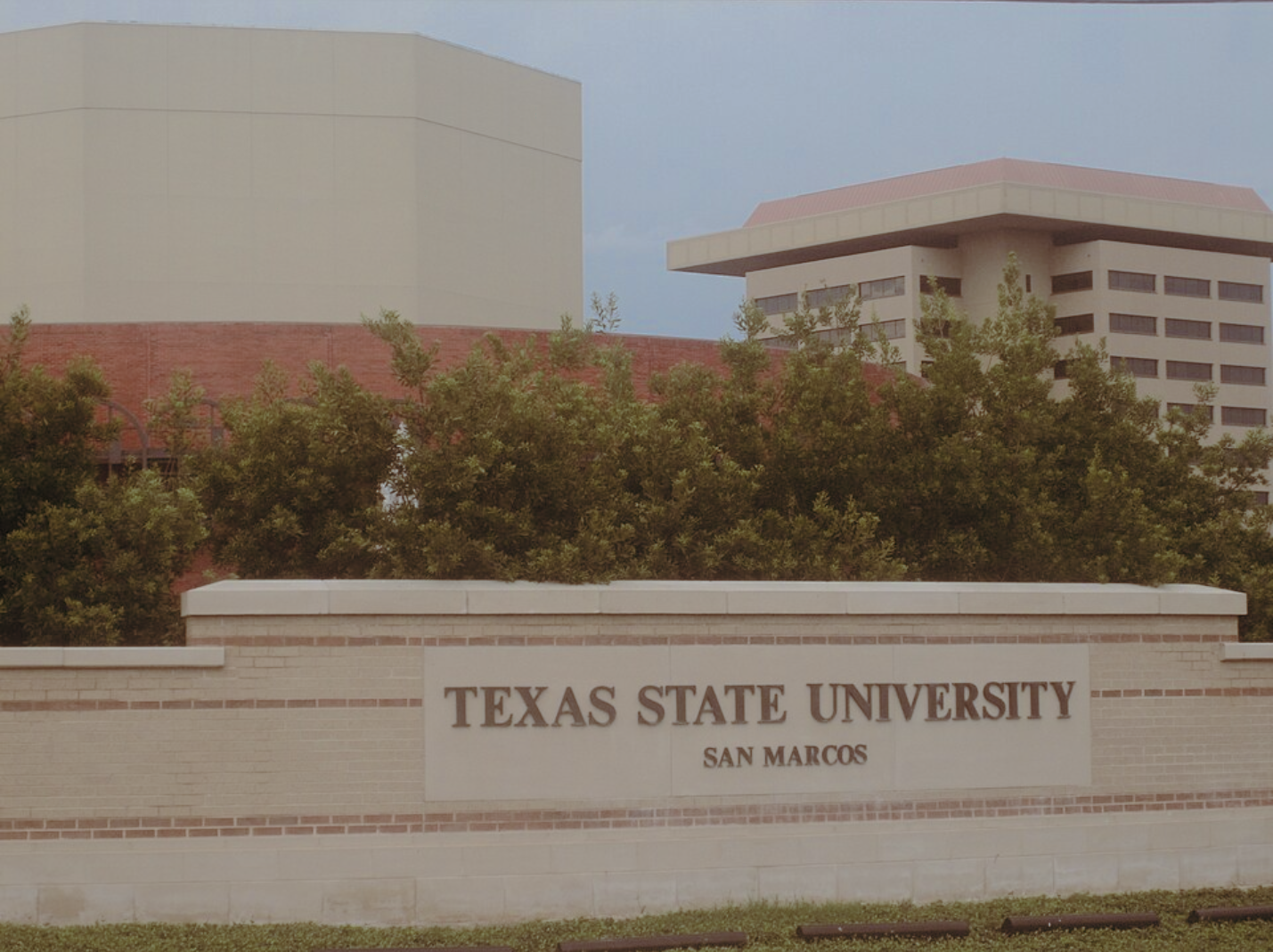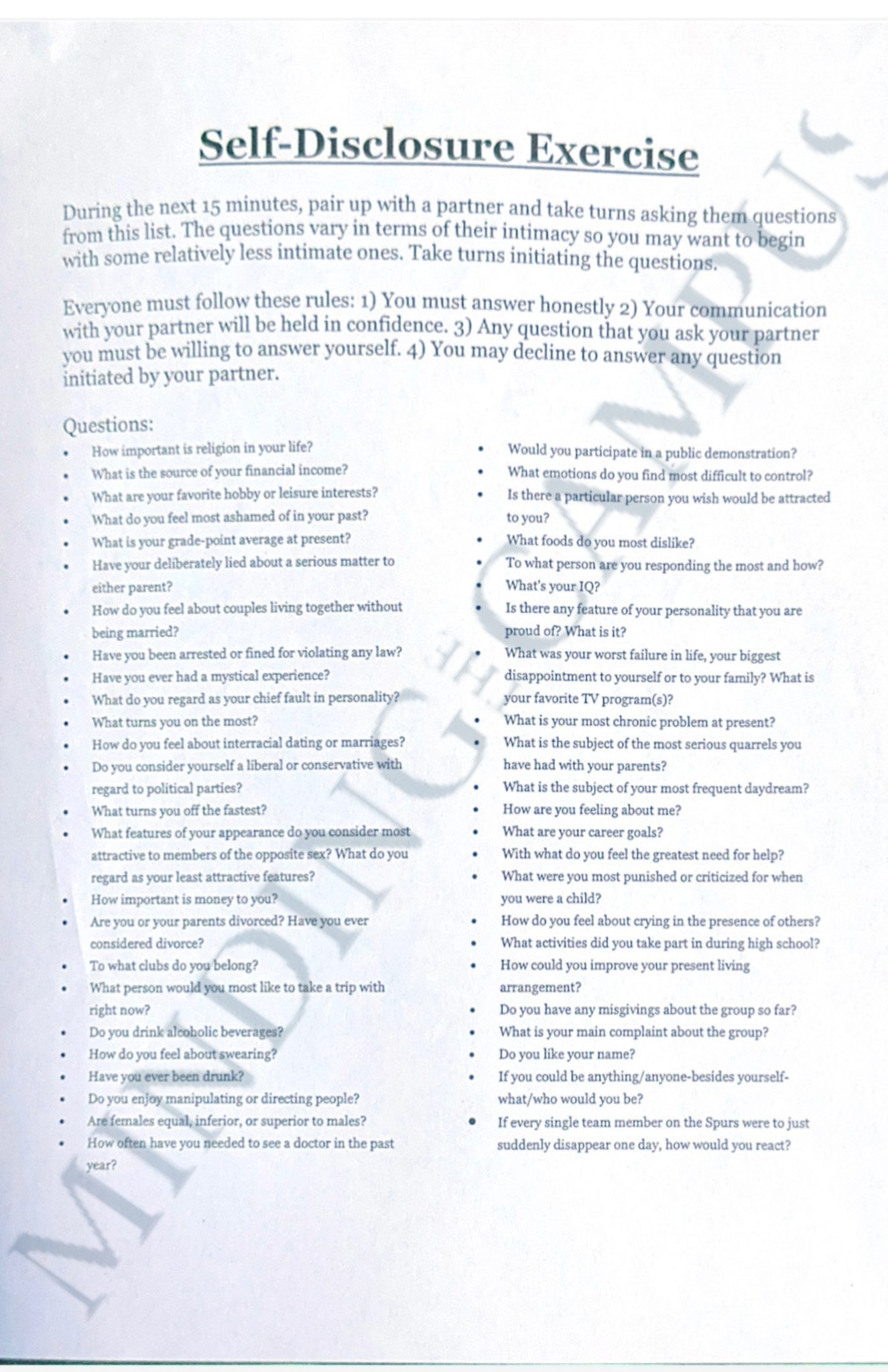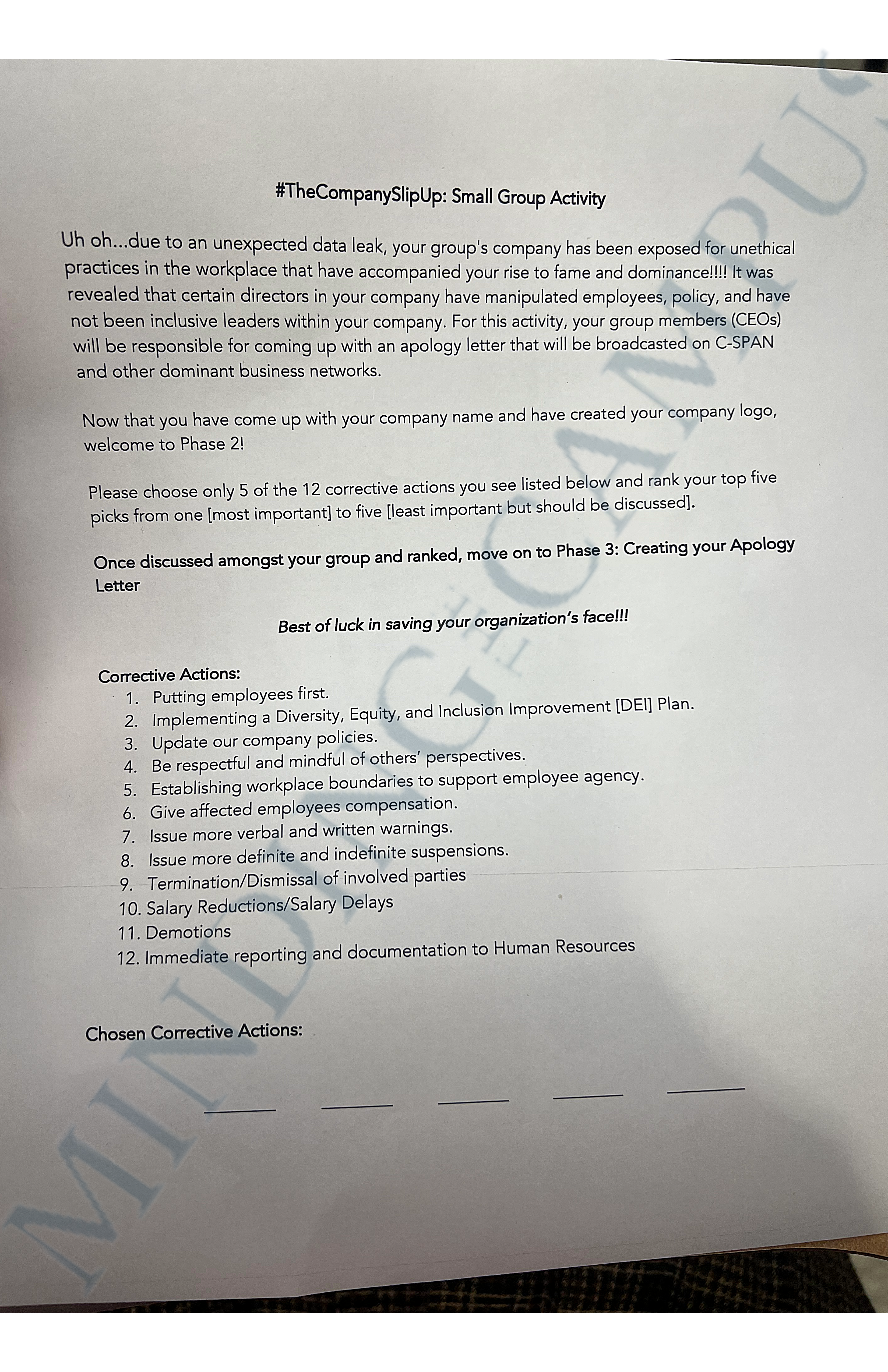
Note: Top of Mind subscribers received a condensed version of this article in this week’s newsletter. This is the full-length piece, including copies of the assignments discussed.
If one were to need a specific example of how colleges and universities are creating leftist foot soldiers, they need look no further than the assignments currently being given at Texas State University.
A Texas State student shared with Minding the Campus two assignments from a required communications course the student is taking this semester. Both assignments are bizarre, and at least one reveals explicitly how ideological training in “diversity, equity, and inclusion” (DEI) has seeped into even the most ordinary corners of the curriculum, transforming basic communication exercises into social conditioning drills.
One assignment, called a “Self-Disclosure Exercise,” requires pairs of students to ask each other a series of intrusive questions during a 15-minute session. According to the student, the stated purpose of the exercise was to serve as a peer-to-peer communication activity. Among the prompts: “What features of your appearance do you consider most attractive to members of the opposite sex?,” “What turns you on?,” and “Are females equal, inferior, or superior to males?” Other questions probe students’ religion, income, political leanings, criminal history, and sexual attitudes.

The second assignment, titled “#TheCompanySlipUp: Small Group Activity,” places students in the role of crisis managers at a fictional company accused of “unethical practices in the workplace.” Students must imagine themselves responsible for drafting a public apology and then choose five “corrective actions” to repair the company’s reputation.
Among the required options for rebuilding trust? “Implementing a Diversity, Equity, and Inclusion Improvement [DEI] Plan.” In other words, the assignment frames DEI expansion as a default, almost compulsory remedy for alleged wrongdoing, positioning it as the practical and moral centerpiece of corporate reform.

The required communications course is led by Dr. Alan Grant, who, according to his faculty profile on the Texas State website, “frequently works social justice initiatives into the classroom environment.” He notes that he assembles a team of teaching assistants drawn from “various nationalities, ethnicities, and sexual persuasions” to lead group discussions on a range of topics.
Each assistant is also assigned a “mini-lecture” aligned with their academic focus—a series that has included presentations such as “Understanding Latin X,” “The Korean Exchange,” and “Challenging Binaries.”
Dr. Grant further states that his pedagogical goals include acknowledging who is in the room, meeting students “where they are ideologically,” and “instituting sessions specifically related to race, class, gender, [and] ability.” According to his biography, he is currently researching “racial ventriloquism,” the idea that when someone from a majority group—meaning whites—speaks about minority issues, they are effectively impersonating those communities.
Meanwhile, a Graduate Instructional Assistant for the course, Suraya Alidu—who leads the lab section—describes herself on LinkedIn as a “Media Personality, Disability Rights Activist, and Women’s Development Advocate.”
According to the student, Alidu often begins lab sessions by asking students for their consent to take attendance, which is understood to be a symbolic gesture of “inclusivity”—In the seminary of DEI, can we be surprised at the ritual of woke?
All of this is occurring despite Texas’s sweeping effort to eliminate DEI from its public institutions.
In 2023, the legislature passed Senate Bill 17, banning DEI offices and initiatives at public universities, a law that took effect in 2024. More recently, Senate Bill 12 extended DEI restrictions to K–12 schools and is now in effect for the 2025–2026 school year. Governor Greg Abbott has issued an executive order directing all state agencies to dismantle DEI policies, and President Trump has issued a similar order at the federal level.
These assignments, however, expose that no bill or executive order can entirely uproot DEI.
The ideology has become so woven into the habits of modern universities that it persists even after the bureaucratic structures are dismantled, quietly embedding itself in lectures, exercises, and routine coursework.
Within that everyday academic work is where the indoctrination occurs—shaped by professors who see it as their job to transmit this ideology.
Follow Jared Gould on X.
Image: “Texas State University at San Marcos sign” by Billy Hathorn on Wikimedia Commons

“Alidu often begins lab sessions by asking students for their consent to take attendance”
And what happens if they don’t give it?
On a more serious note, does this class have IRB approval?!?
Any research which involves human subjects — which this is — must have IRB approval if Federal funding is involved — and if one student is receiving Federal FinAid, it is.
See: https://www.research.txst.edu/orc/irb-resources.html
Texas State defines the purpose of IRB approval better than I can:
“Texas State University, by action of the President, has established an institutional review board (IRB) to review human subject research. This board is supported by Research Integrity and Compliance (RIC).
The IRB reviews research that is conducted or supported by the Texas State University faculty, students or staff in order to determine that the rights and welfare of the human subjects are adequately protected.
The IRB is guided by the ethical principles described in the ‘Belmont Report’ and by the regulations of the U.S. Department of Health and Human Services found at Title 45 Code of Federal Regulations, Part 46. Texas State maintains an approved Federal wide Assurance (FWA00000191) of Compliance with the Office for Human Research Protection (OHRP).
Presented as part of a mandatory class, without opt out provisions, I don’t think this would get IRB approval.
If the IRB wanted to make a fuss about it (or a Governor), this could be grounds for firing a tenured professor. The defense would be that this isn’t human subject research, to which I reply “are you asking human subjects personal questions about their beliefs & morals?”